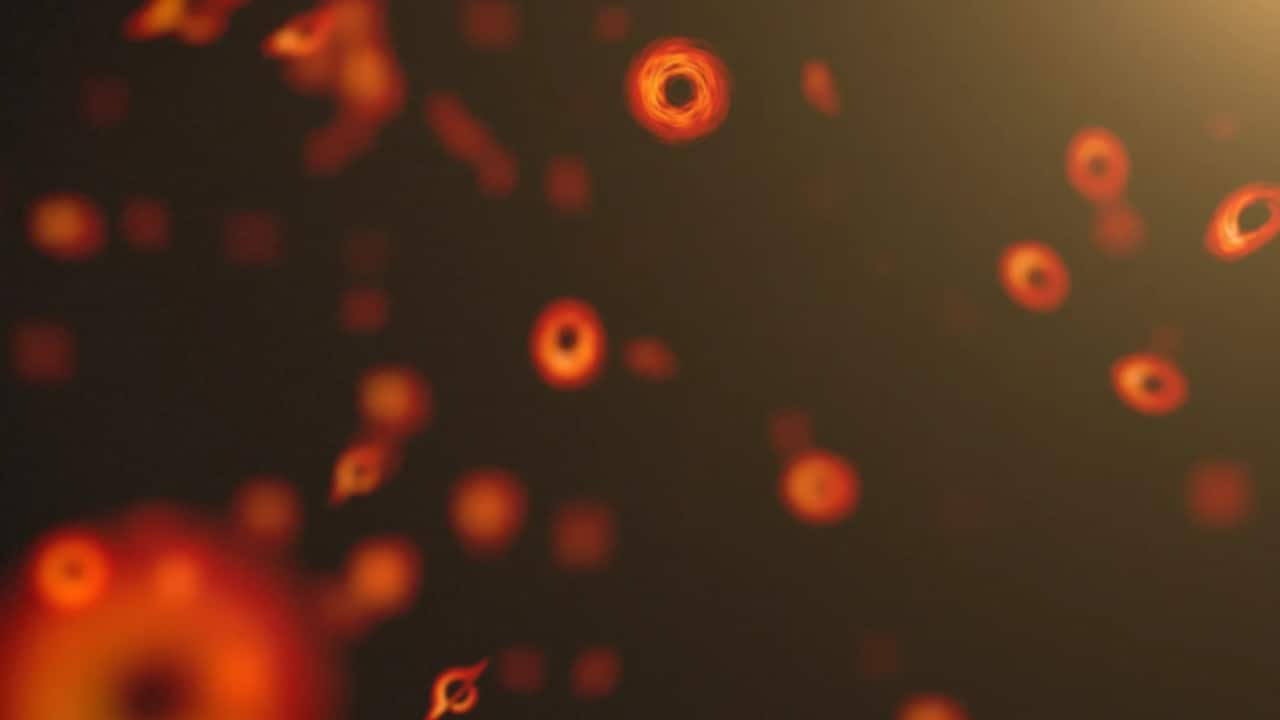



In science fiction, black holes often appear as cosmic monsters, devouring everything in their path. But what if one, smaller than a grain of sand, passed through your body? A new study explores this bizarre possibility, revealing the potential dangers while confirming that the chances of such an event are astonishingly low.
How Dangerous Are Primordial Black Holes?Primordial black holes are thought to have formed in the early universe. Unlike massive stellar black holes, these are much smaller, with masses ranging from that of an atom to several Earths. Scientists examined the effects of asteroid-sized black holes passing through a human body, focusing on tidal forces and shockwaves.
A tiny black hole moving through a limb might cause minimal harm, similar to a needle prick. However, if it passed through the head, the gravitational pull could damage brain cells. Larger primordial black holes could generate strong tidal forces, posing a greater risk.
 Artist's illustration of primordial black holes. (Image: NASA)Shockwaves Pose a Bigger Threat
Artist's illustration of primordial black holes. (Image: NASA)Shockwaves Pose a Bigger ThreatThe study found that shockwaves caused by a tiny black hole would be more harmful than its gravity. These waves could destroy cells and generate heat. If a black hole the size of an asteroid entered the body, it could create a shockwave as powerful as a .22-calibre bullet, potentially proving fatal.
Despite this, scientists reassure that such encounters are extremely unlikely. Even if primordial black holes exist, the probability of one passing through a person is estimated to be less than one in 10 trillion. While the study highlights a fascinating intersection of astrophysics and human biology, it remains a purely theoretical concern.
Discover the latest Business News, Sensex, and Nifty updates. Obtain Personal Finance insights, tax queries, and expert opinions on Moneycontrol or download the Moneycontrol App to stay updated!
Find the best of Al News in one place, specially curated for you every weekend.
Stay on top of the latest tech trends and biggest startup news.